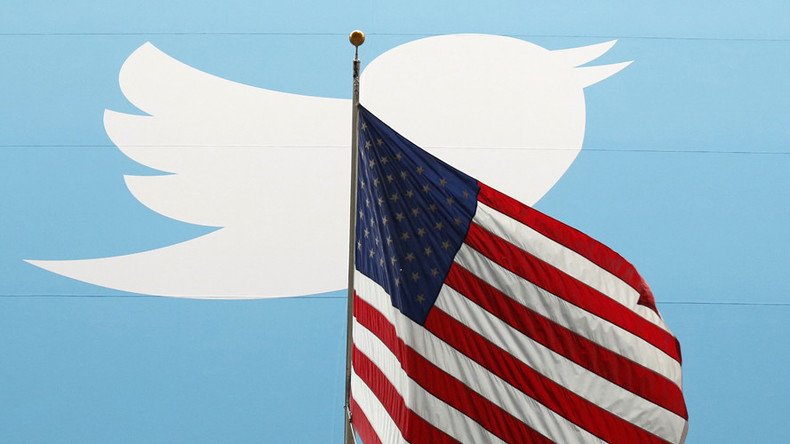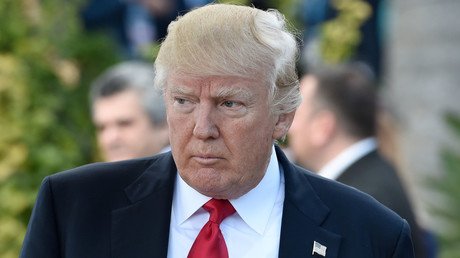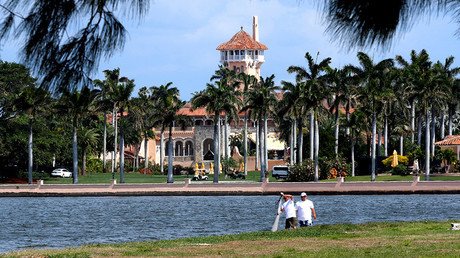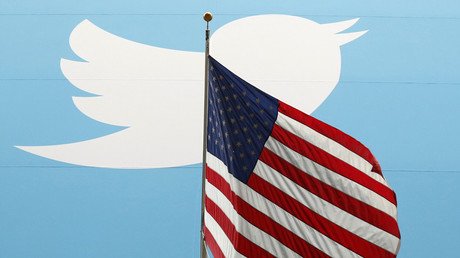Illinois Dem’s COVFEFE Act would archive Trump’s tweets as public documents

Covfefe, the cryptic word tweeted by President Donald Trump two weeks ago, has been repurposed by one of his critics as an acronym for the bill that would order Trump’s personal tweets archived as public documents.
On Monday, Representative Mike Quigley (D-Illinois) proposed the “Communications Over Various Feeds Electronically for Engagement” (COVFEFE) Act, under which the tweets from Trump’s personal account would be archived in the same manner under the official @POTUS account under the Presidential Records Act. The bill would also make Trump deleting tweets a violation of the PRA and “subject to disciplinary action.”
“In order to maintain public trust in government, elected officials must answer for what they do and say; this includes 140-character tweets,” Quigley said in a statement announcing the bill. “President Trump’s frequent, unfiltered use of his personal Twitter account as a means of official communication is unprecedented. If the President is going to take to social media to make sudden public policy proclamations, we must ensure that these statements are documented and preserved for future reference. Tweets are powerful, and the President must be held accountable for every post.”
If Trump is going to take to social media to make public policy proclamations, we must ensure these statements are preserved. #COVFEFEAct
— Mike Quigley (@RepMikeQuigley) June 12, 2017
Quigley named the bill after the term used by Trump in a May 30 tweet that quickly vent viral, because nobody could figure out what it meant.
“Despite the constant negative press covfefe,” Trump wrote. He later deleted the tweet, adding, “Who can figure out the true meaning of ‘covfefe’??? Enjoy!”
Though his critics have demanded that Trump stop using Twitter and honor the established communication channels, the president has said that the social media platform worked well enough for him during the campaign, and that he will continue sharing his message directly with the American people without having to rely on the overwhelmingly hostile major media.
Quigley’s effort is focusing on last week’s statement by White House spokesman Sean Spicer that Trump’s tweets are “considered official statements by the president of the United States.” He argues that Trump’s “unprecedented” use of Twitter confirms the 2014 guidance by the National Archives that social media merits inclusion into the historical record.
This is not the first effort to treat Trump’s personal Twitter account as government property. Last week, lawyers from the Knight First Amendment Institute at Columbia University argued that Trump’s personal account was a “designated public forum,” and therefore blocking other users would be a violation of their First Amendment rights to free speech.
Nor is this the first time Quigley has used creative acronyms for bills proposing greater oversight of the Trump administration. In March, he introduced the "Making Access Records Available to Lead American Government Openness" (MAR-A-LAGO) Act, demanding the publication of visitor logs to the White House or any other location where Trump regularly conducted official business, including his Mar-a-Lago resort in Florida.
Social media reactions to Quigley’s proposal were mixed, with Trump critics voicing amusement while the president’s supporters wondered if the congressman representing violence-riddled Chicago has nothing better to do.
The meaning of covfefe is to give covfefe meaning. https://t.co/Fag6Lfdk9i
— Sabrina McMillin (@sabrinamcmillin) June 12, 2017
"COVFEFE Act" 'cause @RepMikeQuigley looked out his Chicago window at the blood on the streets & said "I have nothing to do but troll Trump" pic.twitter.com/aZGaGP6AaQ
— Deb #AmericaFirst (@ALilJaded4u2) June 12, 2017
Dear democrats,
— #ThePersistence (@ScottPresler) June 12, 2017
Every President's tweets are already documented. You're just mad because covfefe means we're winning.#CovfefeAct















